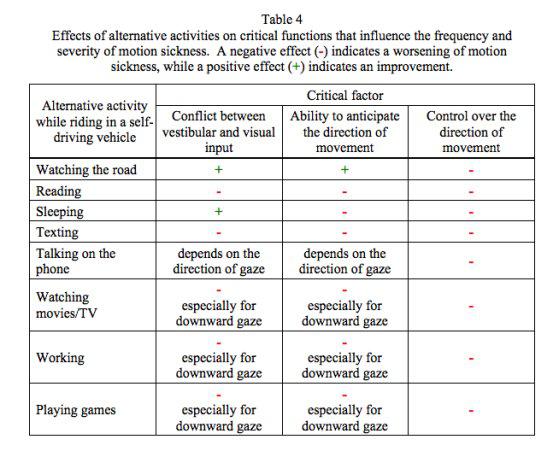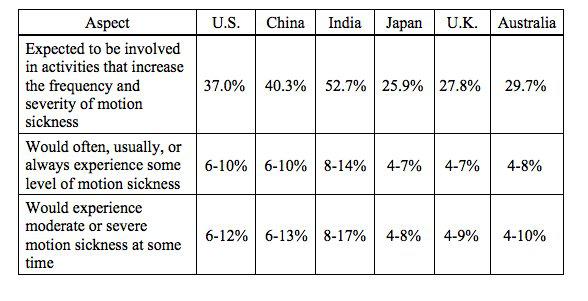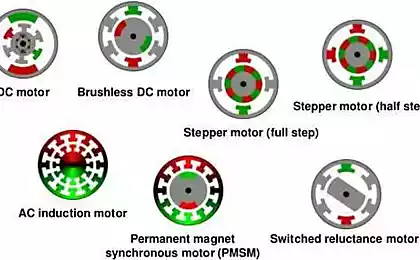744
Whether in a self-rocking machine?
Scientists from the Transport Research Institute at the University of Michigan had a социологическое research in order to identify how the machine with the autopilot will affect the vestibular system users - or rather, will the people rocking in such transport.

The survey polled more than 3,200 respondents from the US, India, China, Japan, the UK and Australia. The question asked is quite simple: "What do you do in a self-drive?»
More than a third of Americans called the activity, which will increase the symptoms of seasickness or motion sickness cause. The "risk" includes all those activities that we are so eager to present advertisers autopilots: reading, watching movies, games and any other activity that looks to the human horizon immovable object inside the cabin.
As you know, kinotez or motion sickness, is "out of sync" information that is transmitted to the brain and the inner ear, vision of man. The sixth sense tells about the movement, while the vision of a very different picture shows that the brain leads to the conclusion: "The body was a toxin, we began galyuny - it's time to cleanse».

On the basis of this physiological help researchers from Michigan built Statistics "ukachivaemosti" in the self-governing transport. Surprisingly, the lead in this race population of the countries where the traffic - an incredibly complex and shocking. In the first place was India, where almost half of the respondents want to look in the blue laptop screen, followed by China (40%) and Japan (26-30%).

They then compared the statistics with information on the average "ukachivaemosti" adults in land transport and thus brought the average result of 22% prone to seasickness self-governing transport.
Naturally, this will not stop the alleged inconvenience development of autopilots, all the more so now 27% of US citizens expressed < / a> for a ban on "human" driving. And yet there is a hope that you will get 30% of the lucky ones, who, according to statistics NASA immune to motion sickness.
Source: geektimes.ru/company/smile-expo/blog/251730/

The survey polled more than 3,200 respondents from the US, India, China, Japan, the UK and Australia. The question asked is quite simple: "What do you do in a self-drive?»
More than a third of Americans called the activity, which will increase the symptoms of seasickness or motion sickness cause. The "risk" includes all those activities that we are so eager to present advertisers autopilots: reading, watching movies, games and any other activity that looks to the human horizon immovable object inside the cabin.
As you know, kinotez or motion sickness, is "out of sync" information that is transmitted to the brain and the inner ear, vision of man. The sixth sense tells about the movement, while the vision of a very different picture shows that the brain leads to the conclusion: "The body was a toxin, we began galyuny - it's time to cleanse».

On the basis of this physiological help researchers from Michigan built Statistics "ukachivaemosti" in the self-governing transport. Surprisingly, the lead in this race population of the countries where the traffic - an incredibly complex and shocking. In the first place was India, where almost half of the respondents want to look in the blue laptop screen, followed by China (40%) and Japan (26-30%).

They then compared the statistics with information on the average "ukachivaemosti" adults in land transport and thus brought the average result of 22% prone to seasickness self-governing transport.
Naturally, this will not stop the alleged inconvenience development of autopilots, all the more so now 27% of US citizens expressed < / a> for a ban on "human" driving. And yet there is a hope that you will get 30% of the lucky ones, who, according to statistics NASA immune to motion sickness.
Source: geektimes.ru/company/smile-expo/blog/251730/
Injection molding in silicone - available small-scale production at home
The suit "Martian": expert opinion























